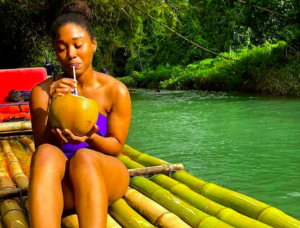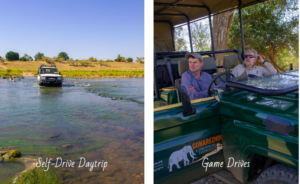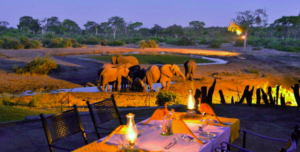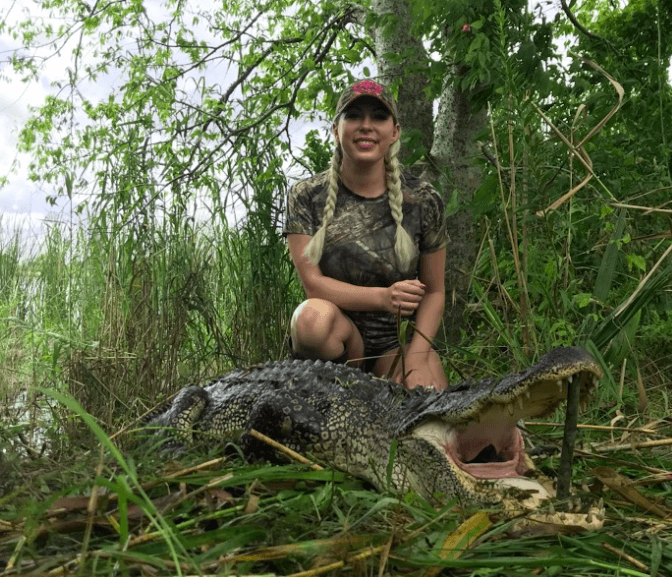
Louisiana Alligator hunting.
Welcome to the enchanting bayous of Louisiana, where alligator hunting reigns supreme. Louisiana is renowned for its rich alligator populations and offers a thrilling and immersive hunting experience for enthusiasts. In this article, we embark on a journey into the heart of Louisiana’s alligator country, exploring the captivating world of alligator hunting in the bayous.
From the mysterious swamps and meandering waterways to the thrill of encountering these magnificent reptilian predators up close, Louisiana delivers an unparalleled alligator hunting adventure. Join us as we delve into the vibrant culture, unique hunting techniques, and extraordinary landscapes that make Louisiana an ultimate destination for alligator hunters. Get ready to immerse yourself in the thrill of Louisiana alligator hunting—a bayou adventure like no other awaits!
Louisiana Alligator Hunting Seasons
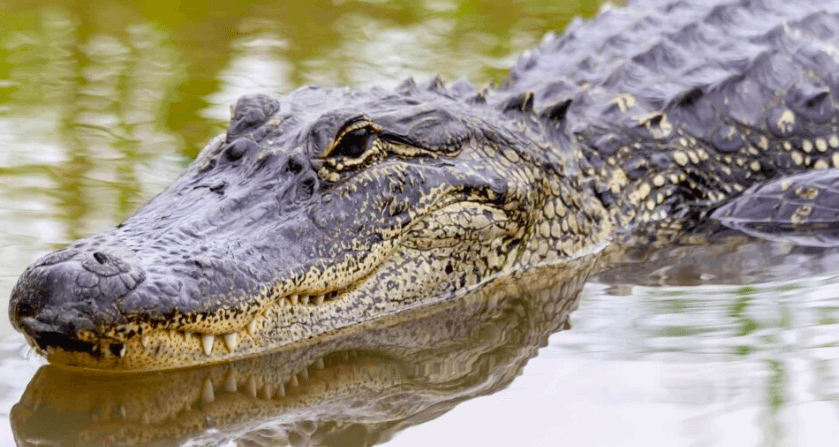
The Louisiana Department of Wildlife and Fisheries (LDWF) manages well-defined alligator hunting seasons. The following is an explanation of Louisiana’s alligator hunting seasons:
Wild Alligator Harvest Season:
The Wild Alligator Harvest Season, which normally begins on the first Wednesday in September and lasts 30 days, is the principal alligator hunting season in Louisiana. Under LDWF regulations, this season permits licenced hunters to chase alligators in certain public waters and private properties.
Lottery and Controlled Harvests:
Louisiana provides limited-entry lottery hunts and regulated harvests in addition to the Wild Alligator Harvest Season. These hunts take place on designated wildlife management zones and privately held properties, with a limited number of licences distributed via a lottery or controlled harvest system.
Special Opportunity Hunts:
Louisiana offers unique hunts for kids and disabled hunters, giving them exclusive access to specified hunting regions and timeframes. These hunts strive to promote inclusion and give these groups with unique experiences.
Nuisance Alligator Control:
Outside of the regular hunting seasons, Louisiana also permits for the eradication of nuisance alligators. LDWF enables private landowners or their approved representatives to remove alligators that pose a hazard to human safety or cause property damage.
Tagging and Reporting Requirements:
The LDWF requires that all alligators taken be properly tagged and reported. Tags are issued to each approved hunter for the alligators they are allowed to take, and these tags must be securely fastened to the collected alligators. In addition, hunters must report their catch within 24 hours after capture.
Size and Bag Restrictions:
In Louisiana, the LDWF enforces size limitations and bag limits for alligator hunting. These laws are intended to guarantee sustainable harvests while also protecting the people. Hunters must abide to the size restrictions and bag limits, which may vary based on the hunting season and location.
It’s vital to keep in mind that the specifics and rules for alligator hunting seasons in Louisiana may vary from year to year. For the most up-to-date information on alligator hunting seasons, restrictions, and requirements in Louisiana, contact the Louisiana Department of Wildlife and Fisheries (LDWF) or visit their official website.
Louisiana Alligator Hunting locations

Louisiana has a wide range of alligator hunting opportunities, thanks to its abundant alligator population and diverse wetland habitat. The following are some popular alligator hunting spots in Louisiana:
Atchafalaya River Basin:
The Atchafalaya Basin, one of the largest river swamps in the United States, provides excellent alligator hunting opportunities. This large and wild region is notable for its enormous marshes, bayous, and cypress-tupelo wetlands.
Lake Verret:
Lake Verret, located in Assumption Parish, is well-known for its thriving alligator population. This enormous lake, together with its neighbouring marshes and bayous, provides excellent alligator hunting grounds.
Lake Des Allemands:
Lake Des Allemands, located in the parishes of St. Charles and Lafourche, is home to a large number of alligators. The shallow waters of the lake, cypress trees, and neighbouring marshes provide a great setting for alligator hunting.
Atchafalaya Delta Wildlife Management Area:
This wildlife management area in St. Mary Parish has a large tract of marshes, swamps, and backwater lakes. It offers several prospects for alligator hunting.
Joyce Wildlife Management Area:
Joyce Wildlife Management Area, located in Tangipahoa Parish, provides a variety of habitats, including marshes, swamps, and hardwood woods, making it an ideal place for alligator hunting.
Maurepas Swamp Wildlife Management Area:
Maurepas Swamp Wildlife Management Area, located in Ascension and Livingston Parishes, is a combination of marshes, cypress-tupelo swamps, and bottomland hardwood woods that provide good alligator hunting.
Pearl River Wildlife Management Area:
The Pearl River Wildlife Management Area, located in St. Tammany Parish, has a variety of habitats, including marshes, swamps, and riverine woods, which attract alligators and provide hunting possibilities.
Sabine National Wildlife Refuge:
The Sabine National Wildlife Refuge, located in southern Louisiana along the Gulf Coast, contains a variety of habitats, including marshes, bayous, and brackish water lakes, making it an ideal location for alligator hunting.
It’s vital to know that access to hunting places varies, and some require special licences or authorization. Furthermore, access to particular regions may be restricted during defined hunting seasons. For the most up-to-date information on alligator hunting places, restrictions, and access requirements, always contact the Louisiana Department of Wildlife and Fisheries (LDWF) or visit their official website.
How to Hunt Alligator in Louisiana
Alligator hunting in Louisiana may be a fun and demanding sport. Here’s a detailed guide on alligator hunting in Louisiana:
Before you may go alligator hunting in Louisiana, you must first get a permission from the Louisiana Department of Wildlife and Fisheries (LDWF). This usually comprises an Alligator Hunting Licence and Tags, which are obtained through an application or lottery system. Make careful to verify the current hunting season’s unique laws and criteria.
Prepare and plan:
Familiarise oneself with the LDWF’s laws, hunting seasons, and limits. Investigate the regions you intend to hunt and learn about alligator behaviour, habitat, and hunting strategies. Prepare your hunting gear, such as weapons, harpoons, snatch hooks, ropes, and safety equipment.
Scout the Hunting Area:
Scout the hunting region ahead of time to identify alligator habitats such as marshes, swamps, bayous, and lakes. Look for alligator indicators like as tracks, slides, and nests. This will assist you in identifying good hunting areas.
Techniques for Hunting:
In Louisiana, typical alligator hunting strategies include spot-and-stalk, baiting, and employing boats. Spot-and-stalk includes approaching alligators discreetly and firing when within range. Baiting is the use of bait to lure alligators to a specified spot, allowing them to be harvested. Boats are frequently utilised to explore rivers and get access to hunting grounds.
Safety First:
Alligator hunting may be risky, so always prioritise safety. Follow weapon safety procedures, use proper safety equipment (such as life jackets), and be mindful of your surroundings. Alligators are powerful and fast, so keep a safe distance and use caution while hunting.
Harvesting and Tagging:
After successfully harvesting an alligator, immediately apply the proper LDWF tags. Tags must be securely attached to the tail of the alligator and stay visible until the animal is processed.
Transportation and reporting:
All alligators obtained must be reported to the LDWF within 24 hours. Follow the reporting guidelines outlined in your permit. When moving alligators, verify all LDWF requirements are followed, including proper tagging and paperwork.
Processing and Utilization:
Process the collected alligator properly, keeping cleanliness and safety in mind. Alligator flesh may be used in a variety of dishes, while the skin can be used to make leather goods or taxidermy. For processing and utilisation procedures, consult resources or seek advice from competent experts.
Respect Wildlife and the Environment:
Respect wildlife and the environment while hunting alligators. To preserve the sustainability and survival of alligator populations, use ethical hunting practises and follow LDWF laws.
Always refer to the most recent LDWF regulations and recommendations for the most up-to-date information about alligator hunting in Louisiana. During the hunting process, it is critical to prioritise safety, respect for animals, and adherence to all applicable rules and regulations.
How to Obtain Alligator Hunting permit in Louisana.
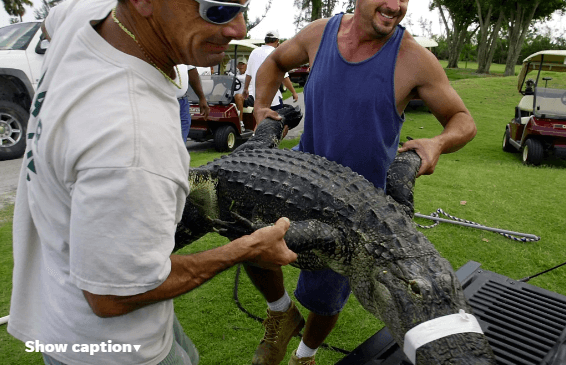
To receive an Alligator Hunting Permit in Louisiana, you must complete the Louisiana Department of Wildlife and Fisheries (LDWF) application process. The following is a general guide to obtaining an Alligator Hunting Permit in Louisiana:
Examine Your Eligibility:
Check to see whether you are eligible to apply for an Alligator Hunting Permit in Louisiana. These conditions may include age limitations and residence requirements.
Application Timeline:
The LDWF usually starts the application period for Alligator Hunting Permits several months before the hunting season begins. The precise dates may vary from year to year, so check the LDWF’s official website or hunting rules for the current application period.
Apply either online or by mail:
The LDWF allows you to apply for Alligator Hunting Permits online or by mail. To use the online application system or get a paper application form, go to their official website or contact their offices.
Fill out the application:
Fill out the application form completely and submit all requested information. This may contain personal information, contact information, hunting preferences, and any other documents required by LDWF.
Send the Application:
If you are applying online, use the online system to submit your application. If applying by mail, submit the completed application form and all required documentation to the LDWF address. Make sure you submit your application within the time frame specified.
Application Processing and Notification:
If the number of applicants exceeds the number of available permits, LDWF will assess the submitted applications and undertake a selection procedure. A random drawing or lottery technique may be used in the selecting process. LDWF will contact successful candidates.
Payment of the Permit Fee:
If your application is accepted and you are issued an Alligator Hunting Permit, you must pay the permit price within the timeframe indicated. The charge amount might change, therefore consult the rules or contact LDWF for the most up-to-date fee information.
Attend any needed orientation or training:
Before the hunting season, the LDWF may compel candidates to attend an obligatory orientation or training session. This workshop will go over hunting rules, safety requirements, and other pertinent information.
It’s crucial to remember that the specifics and procedures for acquiring an Alligator Hunting Permit in Louisiana might change from year to year. To acquire the most up-to-date and accurate information on the application procedure for Alligator Hunting Permits in Louisiana, visit the LDWF’s official website or call their offices directly.
Related posts
- Texas Alligator Hunting: Where Size Meets Adventure”. All You Need To Know.
- Exploring the Finest Alligator Hunting States: Where Adventure Awaits!
- Fiido 500W M21 Fat Tire Electric Bike Full Review.
- Thrilling Boar Hunting Adventures in Hungary: Unleash Your Inner Hunter.
- Roaming the Vast Plains: Utah Bison Hunts Unveiled.
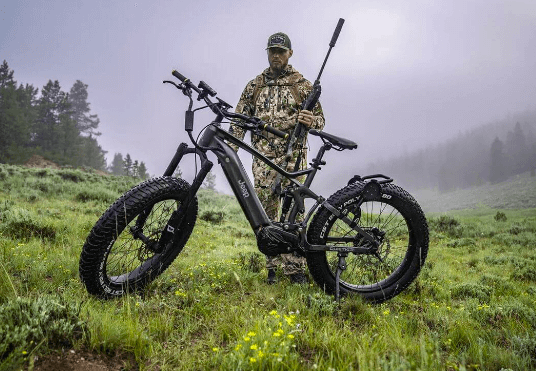
FAQs About Alligator Hunts Louisiana
When is the Louisiana alligator hunting season?
The Louisiana Department of Wildlife and Fisheries (LDWF) sets specified dates for the start of the alligator hunting season in late August or early September.
How do I apply for a Louisiana Alligator Hunting Permit?
During the authorised application time, you can apply for an Alligator Hunting Permit in Louisiana by submitting an application through the LDWF’s online system or by mail.
What are the qualifying requirements for acquiring a Louisiana Alligator Hunting Permit?
To be eligible for an Alligator Hunting Permit in Louisiana, you must fulfil the LDWF’s minimum age and residence criteria.
In Louisiana, how many alligator hunting permits are available?
The amount of Alligator Hunting Permits available in Louisiana changes year to year, based on alligator population size and sustainability.
Is it legal to hunt alligators on public land in Louisiana?
Yes, alligator hunting is permitted in Louisiana on designated public properties such as wildlife management areas, subject to LDWF laws and permission requirements.
Is a hunting licence required in Louisiana to hunt alligators?
Yes, sportsmen in Louisiana must have a valid Louisiana hunting licence in addition to an Alligator Hunting Permit.
Are there any size limitations on alligators hunted in Louisiana?
Yes, the LDWF limits the size of harvested alligators in Louisiana. To be lawfully harvested, alligators must be a specific length, usually about 4 feet.
Can I use alligator bait when hunting in Louisiana?
Baiting is permitted for alligator hunting in Louisiana. Alligator hunters might use bait to lure alligators to a specified place for capture.
Are there any alligator hunting tactics that are forbidden in Louisiana?
Yes, some hunting tactics, such as utilising dogs or weapons with calibres bigger than.22, are illegal in Louisiana for alligator hunting.
Can I sell the alligator flesh and hide that I catch in Louisiana?
Yes, hunters in Louisiana can sell alligator flesh and hide, subject to LDWF laws and reporting requirements.
Is it necessary to report harvested alligators in Louisiana?
Yes, all alligators must be reported to the LDWF within 24 hours after capture. Hunters are expected to report information regarding the alligator’s location, size, and tagging.
During the alligator hunting season, may I hunt alligators without a permit?
No, alligator hunting is heavily controlled in Louisiana, and you must have a legal Alligator Hunting Permit to participate.
In Louisiana, are there any limits on hunting alligators in residential areas or near populous regions?
Yes, the LDWF has explicit restrictions prohibiting alligator hunting in residential areas or near inhabited regions for safety concerns.
Can I go alligator hunting if I’m not a Louisiana resident?
Yes, non-residents can go alligator hunting in Louisiana if they get the required permits and licences and follow LDWF laws.
Are there any limits on shooting alligators in Louisiana’s wildlife sanctuaries or refuges?
Yes, hunting alligators is typically illegal in Louisiana wildlife sanctuaries and refuges, which are established for conservation purposes.
Is there an age limit for alligator hunting in Louisiana?
Yes, there are age limitations in Louisiana for alligator hunting. Hunters must be at least 18 years old to participate in the hunt.
Can I hunt alligators in Louisiana with a crossbow or bow and arrow?
No, crossbows and bow and arrow are not permitted for alligator hunting in Louisiana.
Can I hunt alligators on private Louisiana land?
Yes, with the agreement of the proprietor, alligator hunting is permitted on private property in Louisiana, providing hunters have the necessary permits and licences.
Can I use airboats to hunt alligators in Louisiana?
Yes, airboats are regularly used to hunt alligators in Louisiana, particularly in places with shallow seas and marshes.
Are there any limitations in Louisiana on the travel and ownership of harvested alligators?
Yes, the LDWF has precise rules for transporting, possessing, and tagging captured alligators in Louisiana. These rules must be followed by hunters.
Can I use dogs to help hunt down and capture alligators in Louisiana?
No, dogs are not permitted to hunt or help in the capture of alligators in Louisiana.
Can I hunt alligators all year in Louisiana?
No, alligator hunting in Louisiana is only authorised during the LDWF’s specified hunting seasons.


